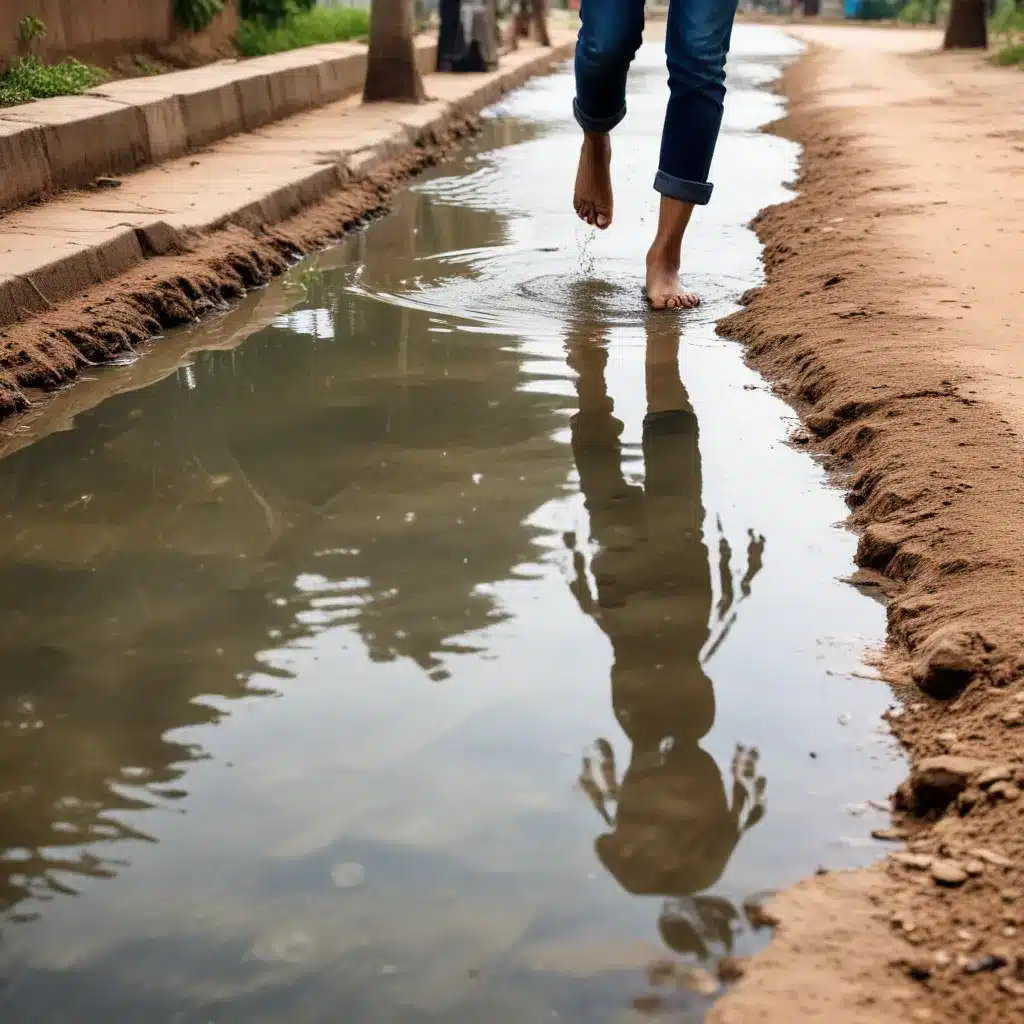
Tackling Water Scarcity through Community Engagement and Advocacy
As a seasoned expert in water and sanitation services, community engagement, and advocacy, I have witnessed the pressing challenges faced by cities like Hyderabad in managing their water resources. The city’s rapid urbanization, coupled with the impacts of climate change, has placed an unprecedented strain on its water supply, highlighting the urgent need for comprehensive strategies to address this critical issue.
Understanding Hyderabad’s Water Footprint
Hyderabad, the vibrant capital of Telangana, is a rapidly growing metropolis that is home to over 10 million residents. The city’s water demand has skyrocketed in recent years, driven by population growth, industrial expansion, and the ever-increasing need for domestic consumption. However, the city’s water sources, primarily dependent on surface water and groundwater, have struggled to keep up with this burgeoning demand, leading to chronic water scarcity and unreliable access to clean water.
Addressing the Challenges: A Multifaceted Approach
To tackle Hyderabad’s water crisis, a multifaceted approach is crucial, encompassing community engagement, policy advocacy, and the promotion of sustainable water management practices. The Joint Action for Water (JAW) initiative, a collaborative effort between local NGOs, government agencies, and community leaders, has been at the forefront of this endeavor.
Community Engagement: Empowering Residents
At the heart of JAW’s strategy is the empowerment of local communities. Through targeted awareness campaigns and educational programs, the initiative has been working to instill a sense of responsibility and ownership among Hyderabad’s residents. By fostering a deeper understanding of the city’s water challenges, the importance of water conservation, and the impact of individual actions, JAW aims to inspire sustainable behavioral changes.
These efforts have manifested in the form of community-driven initiatives, such as rainwater harvesting projects, household-level water audits, and the implementation of water-efficient technologies. By engaging with neighborhood associations, schools, and community centers, JAW has been able to reach a diverse audience, ensuring that the message of water sustainability resonates across all segments of the population.
Policy Advocacy: Shaping the Water Landscape
Alongside community engagement, JAW has been actively involved in advocating for policy reforms and regulatory frameworks that prioritize sustainable water management. The organization has collaborated with local government agencies, providing technical expertise and advocating for the adoption of innovative water management strategies.
One such initiative has been the promotion of Integrated Water Resource Management (IWRM) practices. IWRM emphasizes the holistic management of water resources, considering the interconnectedness of surface water, groundwater, and wastewater. By working with policymakers to implement IWRM principles, JAW has been instrumental in developing comprehensive water management plans that address the city’s unique challenges.
Furthermore, JAW has championed the implementation of water conservation policies, such as mandatory water audits for industries and the introduction of tiered water pricing structures that incentivize responsible water use. These policy interventions have the potential to drive large-scale behavioral changes and ensure the long-term sustainability of Hyderabad’s water supply.
Sustainable Water Management Practices
To complement the community engagement and policy advocacy efforts, JAW has been actively promoting the adoption of sustainable water management practices. This includes the expansion of water recycling and reuse programs, the implementation of advanced wastewater treatment technologies, and the integration of nature-based solutions, such as wetland restoration and urban greening initiatives.
One particularly successful project has been the establishment of decentralized wastewater treatment plants in underserved communities. These small-scale, community-based systems not only provide access to clean water but also reduce the burden on the city’s centralized infrastructure, while generating valuable resources like reclaimed water and nutrient-rich sludge for agricultural use.
Furthermore, JAW has been working with local authorities to enhance the city’s water storage and distribution network, addressing issues of leakage, water quality, and equitable access. By utilizing smart metering technologies and implementing leak detection systems, the initiative has been able to optimize the efficiency of the water supply system, reducing wastage and ensuring more reliable access to water for all residents.
Forging Partnerships for Sustainable Change
The success of JAW’s initiatives in Hyderabad has been largely dependent on the organization’s ability to forge strategic partnerships with diverse stakeholders. By collaborating with government agencies, academic institutions, and private sector entities, JAW has been able to leverage resources, expertise, and influence to drive meaningful and lasting change.
These partnerships have facilitated the exchange of knowledge, the implementation of pilot projects, and the scaling up of successful water management models. For instance, JAW has collaborated with local universities to conduct research on groundwater recharge techniques, informing the design of innovative water conservation strategies.
Additionally, the organization has engaged with the private sector, particularly companies with a strong commitment to sustainability, to explore innovative financing mechanisms and business models that support water stewardship initiatives. This collaborative approach has not only amplified the impact of JAW’s work but has also fostered a sense of shared responsibility for the city’s water security.
Inspiring a Sustainable Future
The water crisis in Hyderabad is a complex challenge that requires a multifaceted approach, combining community engagement, policy advocacy, and the promotion of sustainable water management practices. Through the efforts of the Joint Action for Water initiative, the city has witnessed a remarkable transformation, with residents taking an active role in conserving water, policymakers implementing progressive regulations, and the widespread adoption of innovative water technologies.
As we look towards the future, it is clear that the collaborative approach championed by JAW serves as a model for other cities grappling with similar water-related challenges. By empowering communities, fostering partnerships, and advocating for systemic change, we can pave the way for a more sustainable and resilient water future, not only in Hyderabad but in cities around the world.
To learn more about the Joint Action for Water initiative and explore ways to get involved, please visit their website at https://jointactionforwater.org/. Together, we can make a lasting impact on the water security of our communities and ensure a sustainable tomorrow for generations to come.

